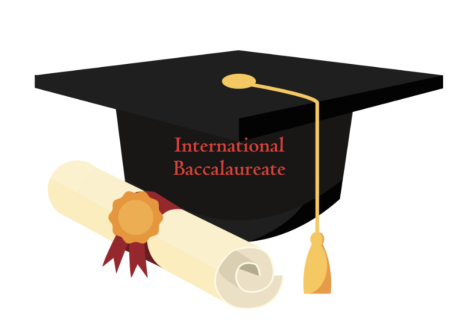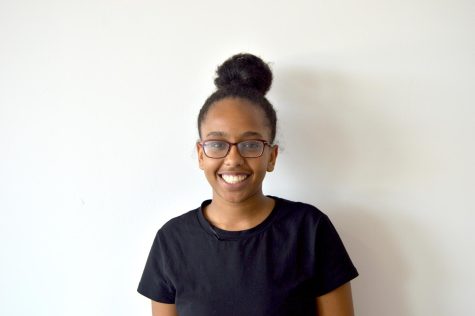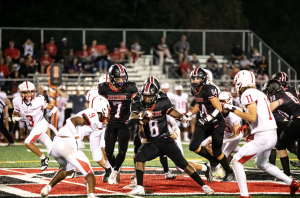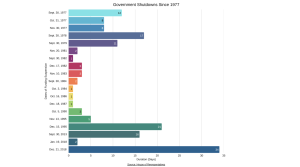Ins and outs of the IB Diploma
January 13, 2023
Whether a teacher is referencing a learner profile trait, or a student is complaining about an upcoming exam, the phrase “IB” is constantly floating around the halls of Meridian High School. International Baccalaureate, or IB, is a non-profit organization dedicated to developing knowledgeable, creative, and inquisitive students. As an IB school, Meridian offers a rigorous curriculum as well as a full diploma option for upperclassmen to pursue. As underclassmen are mapping out their schedules for the next few years, many contemplate the IB diploma pathway. While the IB diploma is said to be extremely advantageous to your educational journey, many students are completely and utterly confused. How do I get the IB Diploma? What are the requirements? Is it even worth it?
Meridian High School was the first school in Virginia to implement the International Baccalaureate Diploma Program, earning it an outstanding reputation. While every student comes across the IB curriculum, the IB diploma is merely an extra diploma option for a graduating student, in addition to attaining either the Standard or Advanced Diploma. After speaking with Mr. Singer, our IB coordinator, The Lasso has gathered all the information you may need if you are interested in obtaining an IB Diploma, or simply want more information.
While the pursuit of the IB Diploma begins at the start of junior year, understanding its requirements is vital before entering the process. In order to be eligible for the Diploma, students must have two English credits from freshman and sophomore year, must be enrolled in at least Algebra 2 or higher as a sophomore, must have a Biology and Chemistry credit, and must have a U.S. Government and World History/Geography 2 credit. Additionally, a student must complete three or four years of language acquisition (Spanish, French, or Mandarin) before their junior year. However, those who have completed AP Spanish 4 as a sophomore have the opportunity to jump straight into IB Spanish SL II their junior year if it is agreed upon by their teacher. While this may seem like a heavy load, the majority of students at Meridian have these credits down by the time they enter 11th grade.
“Anyone who wants to work hard, learn how to manage their time, and do so in a way that involves the balance of a well rounded student and a well rounded person is eligible to go for an IB Diploma,” Mr. Singer said.

IB requires students to take IB classes from six groups of study to qualify for the Diploma. These groups of studies in order from one to six are as follows: Language & Literature, Second Languages, Individuals & Society, Experimental Sciences, Mathematics, and Arts or Electives. If a student does not wish to take a course from group six, they can compensate by taking a second course from groups two, three, or four. There are numerous courses offered in each group of study at both the standard (SL) and honors (HL) level. All HL courses offered at Meridian are two year courses and some of the SL courses are two year courses. While you have the ability to choose which classes you want to take in your junior year, and which classes you want to take in your senior year, IB requires that at least four of them be taken in your junior year.
Students must earn a minimum of 24 points on three SL and three HL course examinations, or four HL course examinations and two SL course examinations. IB external examinations are administered for every IB course and assess skills through essays, multiple choice questions, data response questions, structured problems, and more. A student’s final examination score ranges between one and seven and combines their external assessment as well as their internal assessment, which is graded and facilitated by the course instructor.
Internal assessments are administered in every IB course and are typically research based assignments which are evaluated by the teacher. Additionally, they serve as preparation for the final IB exams which will be conducted at the end of the year.
Beyond course requirements, there are more components that students are obligated to complete when working for the IB Diploma. In addition to the courses mentioned above, IB requires that you take Theory of Knowledge (TOK), write an Extended Essay, and complete activities involving Creativity, Action, and Service (CAS).
TOK is a one year course that runs over the spring of a student’s junior year and throughout the fall of a student’s senior year. Although this is the current timeline for TOK, the school system is looking to make it a two-year course that runs through your entire junior and senior year. It is a course required for IB Diploma candidates to complete but is also an elective that anyone can take if there is availability. TOK takes ideas and procedures taught in core classes and goes into further explanation to encourage critical thinking in students.
“In your regular classes, you’re learning ‘what do we know?’ while TOK asks the question ‘how do we know?’ and then it tweaks that question in a lot of different ways,” Mr. Singer explained.
The Extended Essay is a student-led, 4,000 word essay where students identify a topic they would like to do further research on, outline a question that their research has led them to, and complete a paper to eventually submit. “A lot of students think 4,000 words and start to freak out. What we try to encourage students to do here is to think about the process and not the product,” Mr. Singer said.
Students are typically given from the fall of their junior year to the beginning of their senior year to complete this challenging but ultimately rewarding assignment.
The last component of the IB Diploma, CAS, ensures that students are involved in a range of activities besides their academic studies. “CAS, creativity, activity, and service, is the well rounded aspect of IB, we’re not just looking for kids who want to go in and study all day, everyday,” Mr. Singer described.
Creativity is any instance where you make something, whether it is a poster for a club that you’re in or props for the school play. Activity in the words of CAS Coordinator Ms. Sample is “sweating with a purpose” and it can be participating in an extracurricular sport, or any other physical activity that leads to accomplishment and reflection. Service is searching for ways to give back to the community in an unpaid and voluntary manner. “What makes something a CAS experience is that you intend to do it for a reason, you do it, and you reflect about how it helped you grow, evolve, or change,” Mr. Singer finalized.
The IB Diploma is a rigorous but beneficial route that will teach you how to become a more effective student and how to better manage your time. Additionally, you learn how to juggle the several responsibilities that come with being a high school student and how to prioritize your time effectively.
“Intrinsically, the benefits to you, [are] you’re going to learn a whole lot about yourself, you’re going to be challenged, you’re going to struggle, and when you are challenged and when you are struggling is when you grow,” explained Mr. Singer.
Furthermore, all IB courses come with a weighted GPA, points added to your grade point average in consideration of the difficulty of a course, which boost your high school transcript. Lots of universities have increased confidence in the ability of an IB candidate to succeed in their college due to their ability to complete courses that require excellent time management skills and have heavy workloads. The IB Diploma does not get awarded to students who have successfully accomplished the program until the July after their senior year, and while that is after the majority of college decisions have been made, being a candidate for the IB Diploma itself proves to colleges that you are taking the most rigorous courses your school has to offer. Typically, the Diploma itself will not impact a college’s decision making process. The IB Diploma can additionally assist in acceptance to international schools as well as qualifications for certain financial/merit based aids.
Pertaining to college, the transfer of course credits to a university credit is always dependent on the school which you are applying to. HL courses are usually accepted for college credit throughout the United States and students will typically need to score a 5 or higher on their IB exam. SL courses are sometimes accepted for college credit depending on the regulations the university holds concerning credit transfers. While the IB Diploma is an advantageous opportunity which will set you up for success, it is important to consider whether it will be fitting for you and your educational goals. If you wish to pursue this diploma, the Meridian High School website, has further, in-depth information about the process and requirements for this route.








